Are you struggling with unwanted noise from neighboring properties? Whether it's loud music, relentless construction, or other disruptive sounds, we all know how challenging it can be to find peace in our homes. In this article, we'll explore the essential aspects of property noise regulation, offering practical tips and insights on how you can address these concerns effectively. So, if you're ready to reclaim your quiet space, keep reading to learn more about your rights and options!
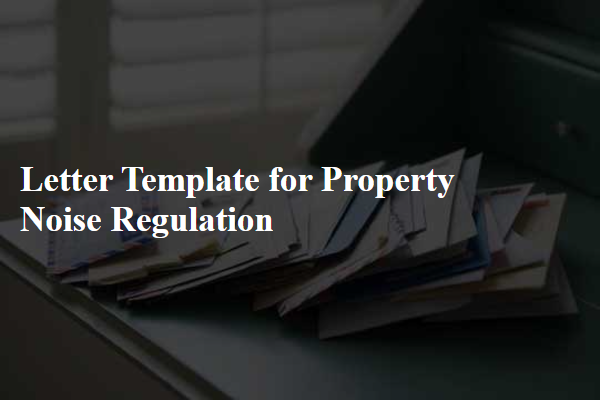
Purpose and intent of the letter
Property noise regulations play a crucial role in maintaining a peaceful living environment. Local communities, such as those in urban settings, often establish ordinances to control excessive noise levels from sources like construction sites, parties, or loud music, particularly during nighttime hours (typically 10 PM to 7 AM). These regulations aim to promote harmony among residents while preserving property values. Enforcement may involve local authorities, such as city ordinances or homeowner association guidelines, ensuring compliance through set fines or measures. Addressing noise concerns fosters a sense of community and ensures everyone can enjoy their living spaces without undue disturbance.
Description of the noise issue
Persistent construction noise can disrupt everyday life for residents in the vicinity of urban areas, particularly in busy metropolitan centers like New York City. Heavy machinery, such as jackhammers and bulldozers, operates during peak hours, often exceeding permissible decibel levels (typically 85 dB). Such noise pollution can lead to heightened stress levels and decreased productivity for individuals working from home. In addition, ongoing renovation activities in nearby residential buildings contribute to disturbances, particularly during early morning hours before legal work commencement times (commonly 7 AM). This ongoing challenge affects the overall quality of life for nearby inhabitants, prompting the need for strict noise regulation enforcement.
Reference to local noise regulations
Local noise regulations play an essential role in maintaining community standards and ensuring residents' comfort. In many municipalities, noise ordinances dictate acceptable sound levels, typically measured in decibels (dB), during specific times, particularly during nighttime hours (often defined as 10 PM to 7 AM). These regulations can address various noise sources, including construction activities, loud music, and other disturbances that may disrupt the peace in residential areas. Enforcement mechanisms, which may include fines or warnings, are often executed by local law enforcement or designated city officials to uphold these standards. Understanding and adhering to these regulations contribute to a harmonious living environment in neighborhoods throughout cities such as Denver, Colorado, or San Francisco, California, where vibrant communities thrive amidst diverse lifestyles.
Request for compliance or action
Noise pollution from residential and commercial properties can significantly disrupt the quality of life in communities, especially in urban areas. Excessive noise levels, often measured in decibels (dB), can lead to stress, anxiety, and sleep disturbances among residents. Local noise regulations typically establish acceptable limits, often around 55 dB during the day and lower at night. Properties in high-density districts, such as New York City or Los Angeles, may face particular scrutiny due to close proximity of buildings. Authorities often enforce ordinances or zoning laws addressing noises from construction, loud music, or ongoing parties. Residents are encouraged to report violations to local law enforcement or municipal offices to ensure appropriate action, fostering a peaceful living environment for all.
Contact information for follow-up
Noise pollution from properties can significantly impact community well-being, especially in urban areas. The regulation of noise levels in residential neighborhoods, such as the enforcement of sound ordinances, is essential for maintaining a peaceful living environment. Frequent disturbances can arise from loud music, construction activities, or late-night gatherings. Local authorities, such as city councils or housing departments, typically establish designated noise limits, often measured in decibels (dB), to mitigate these disruptions. Community members can report violations to relevant departments, ensuring a collaborative effort in preserving tranquility. Follow-up communication with local enforcement agencies can further accelerate responses to persistent noise issues, enhancing accountability and community engagement in noise regulation efforts.
Letter Template For Property Noise Regulation Samples
Letter template of noise complaint regarding nearby construction activities.
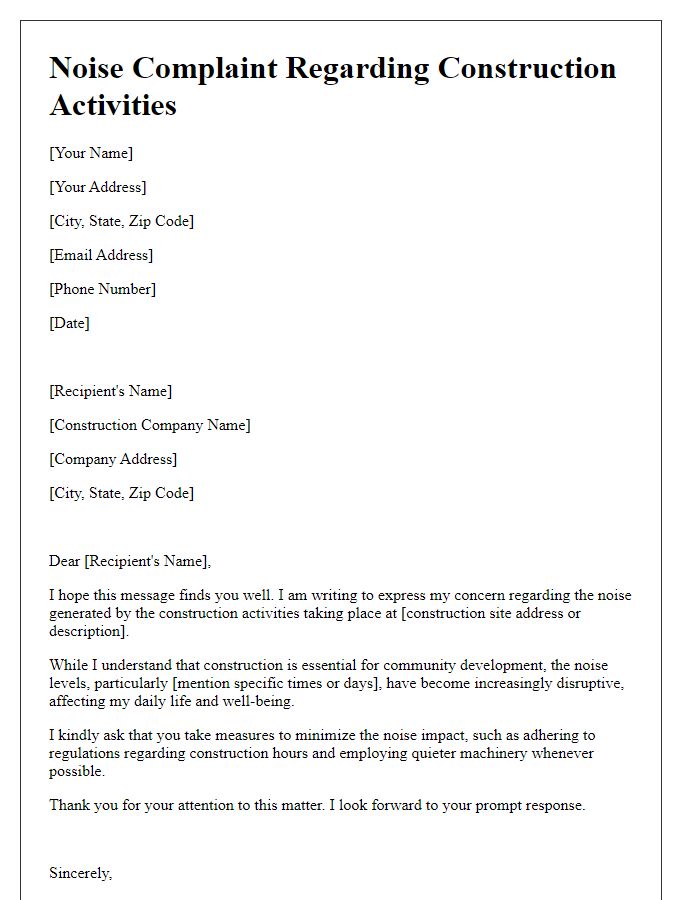
Letter template of request for noise reduction measures in residential areas.
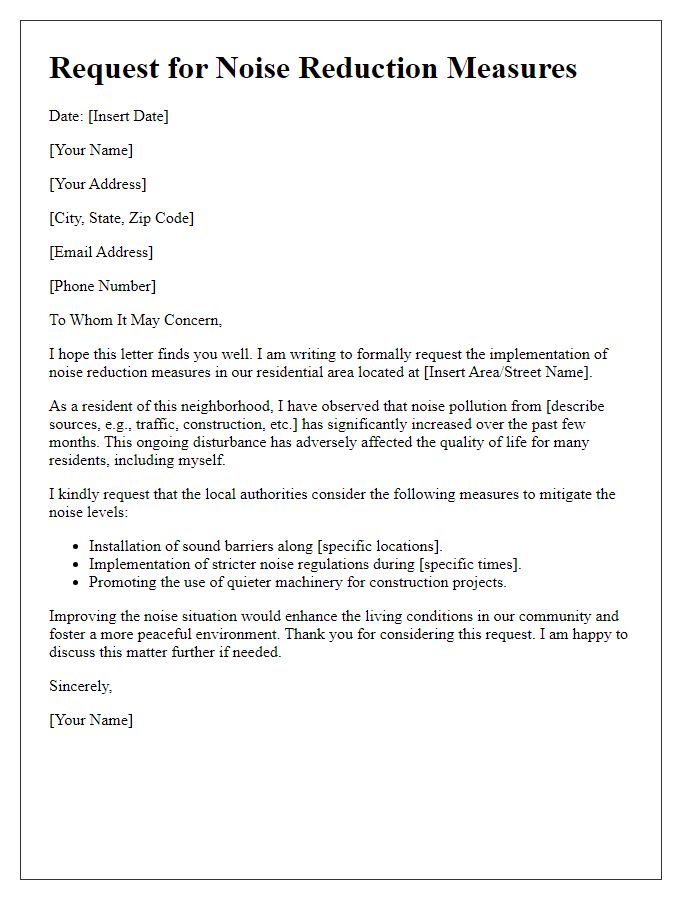
Letter template of report on excessive noise from neighboring properties.
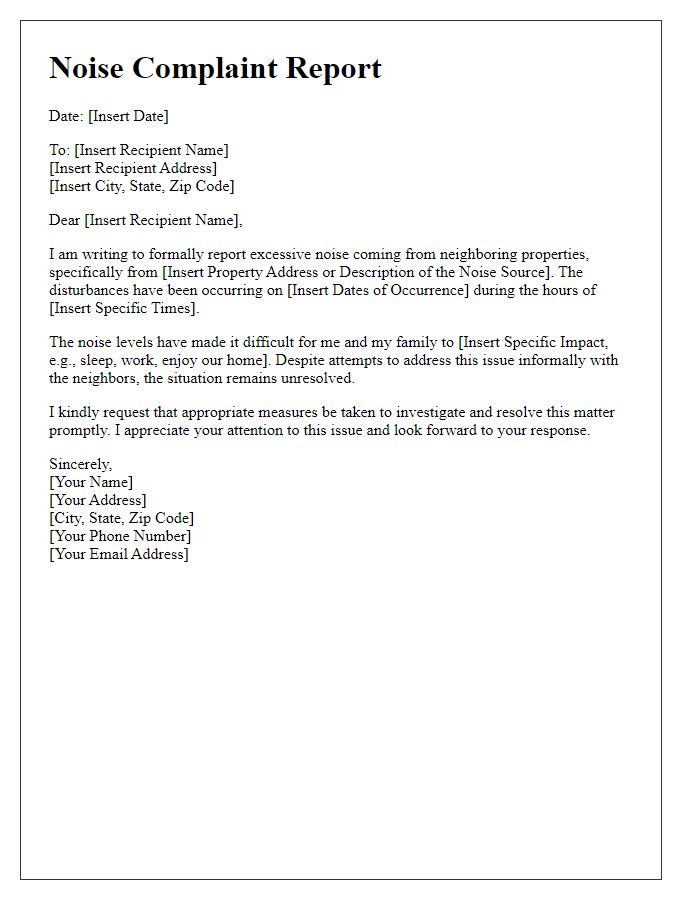
Letter template of formal grievance against persistent loud music noise.
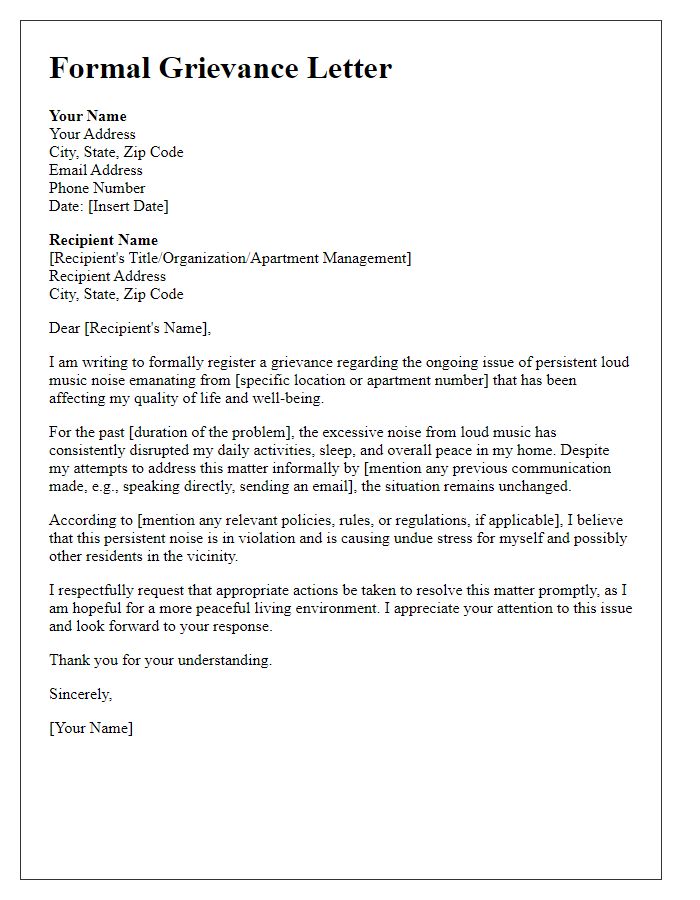
Letter template of notification for noise violation from local authorities.
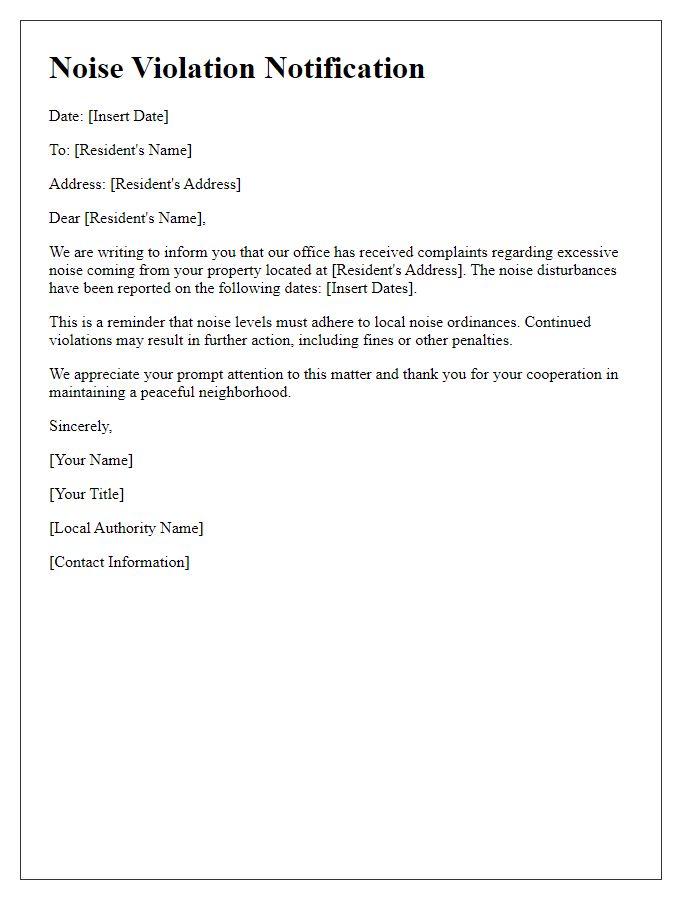

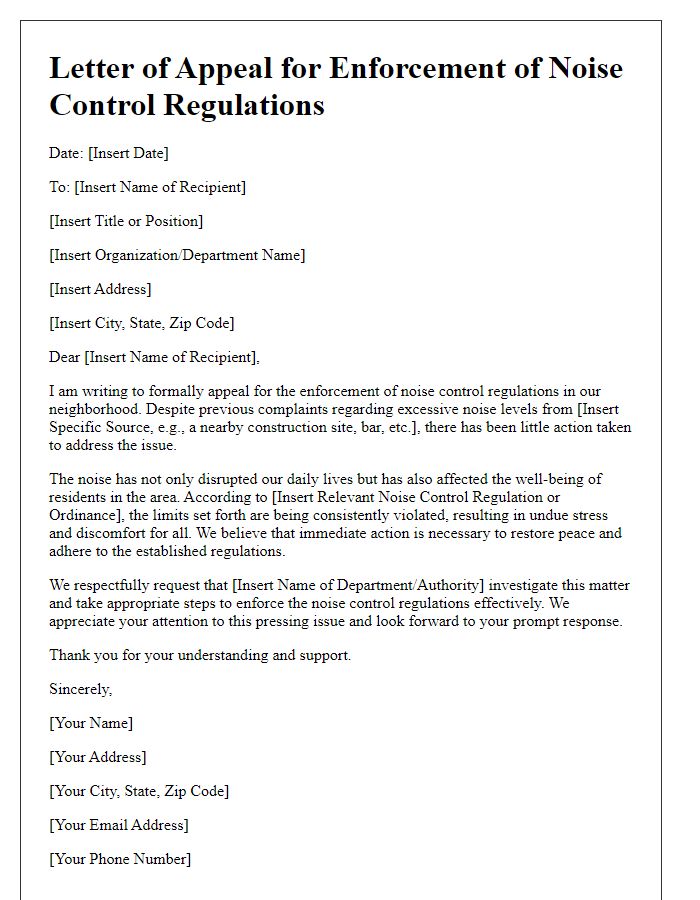
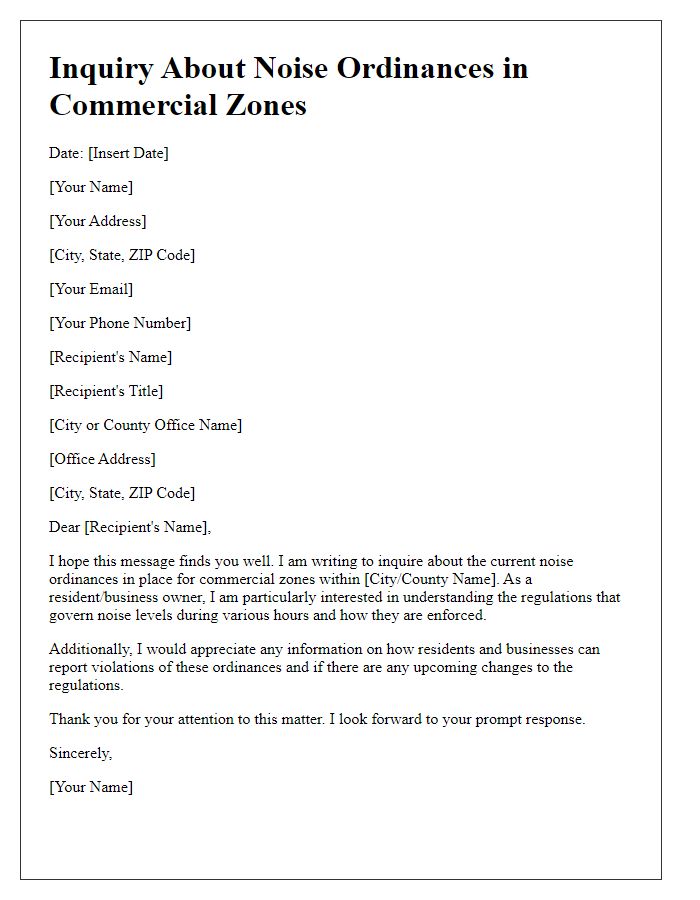
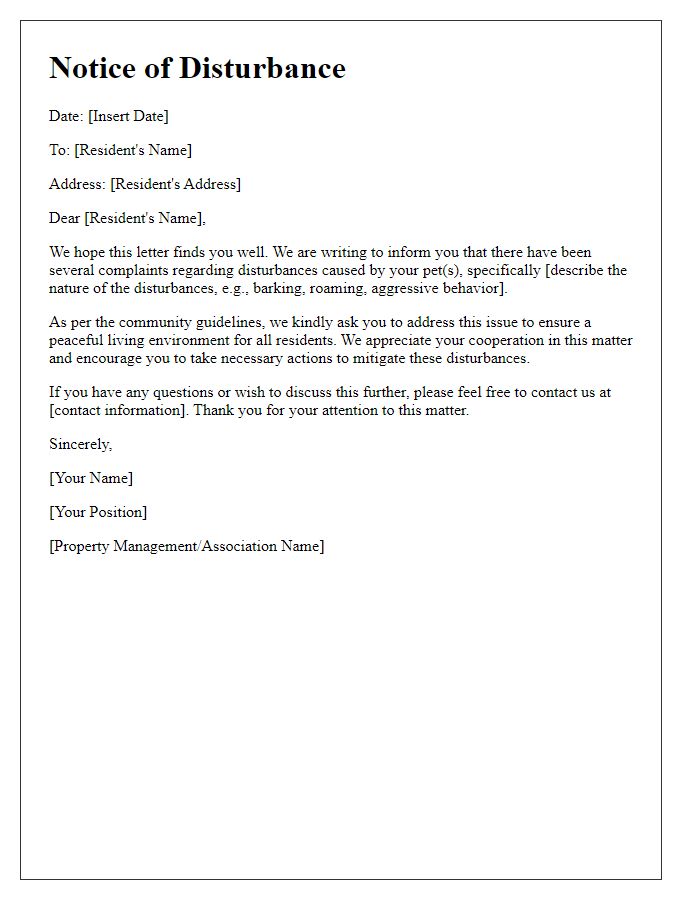
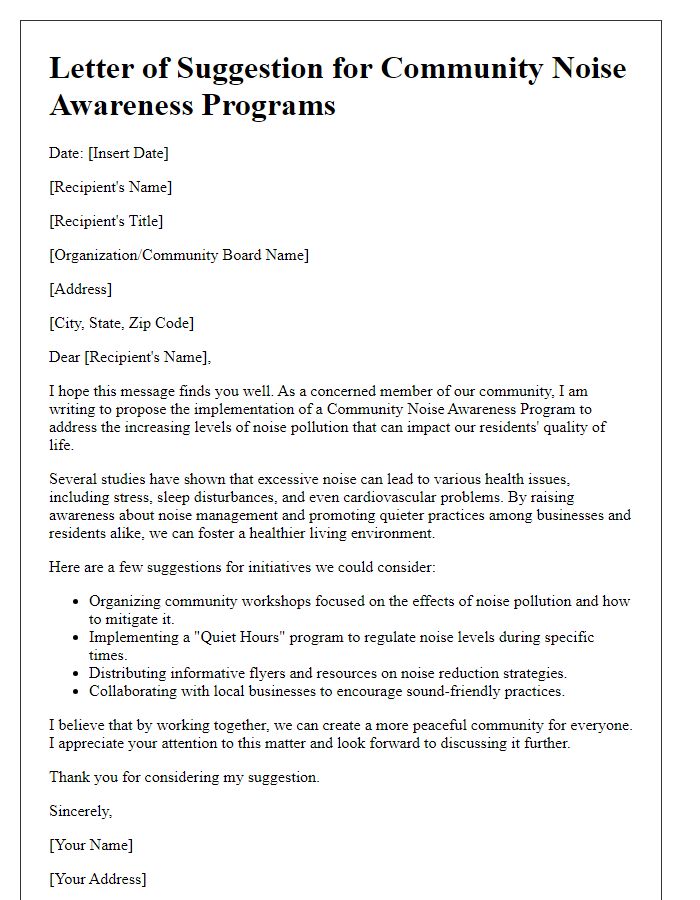
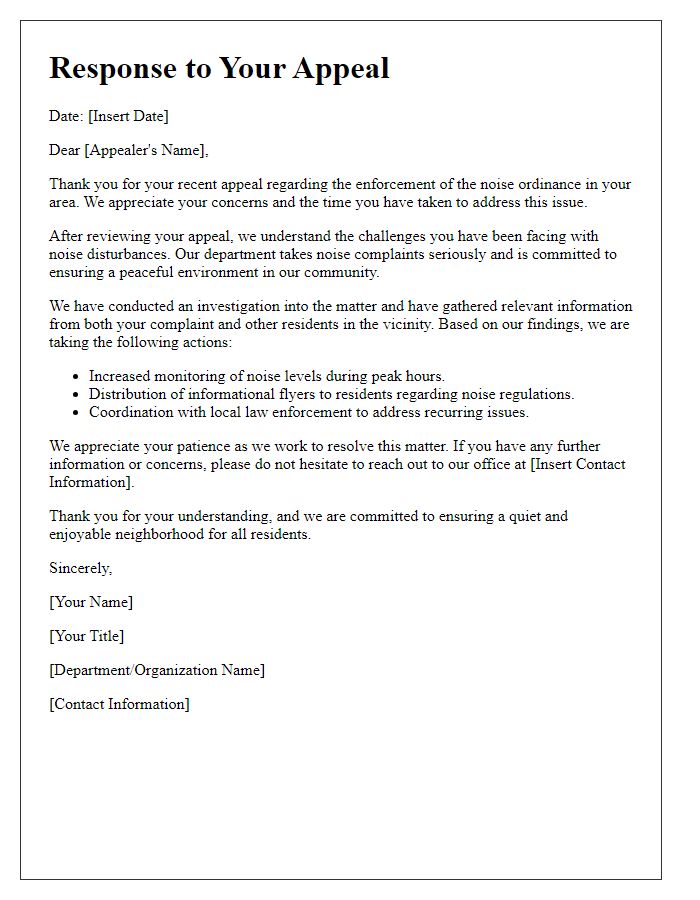


Comments